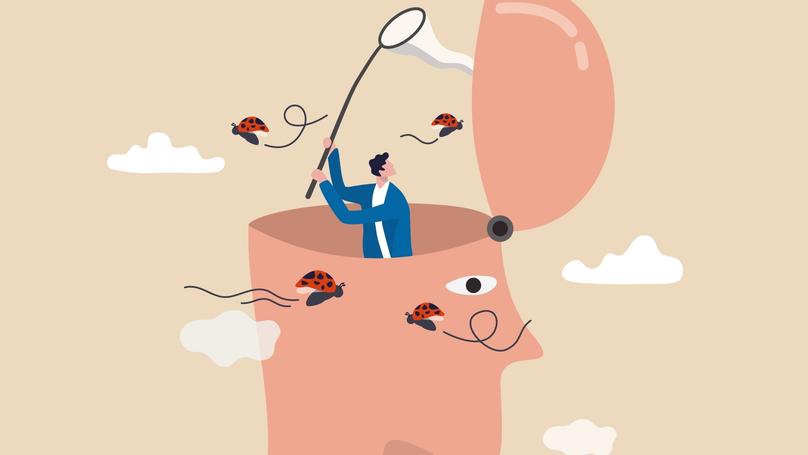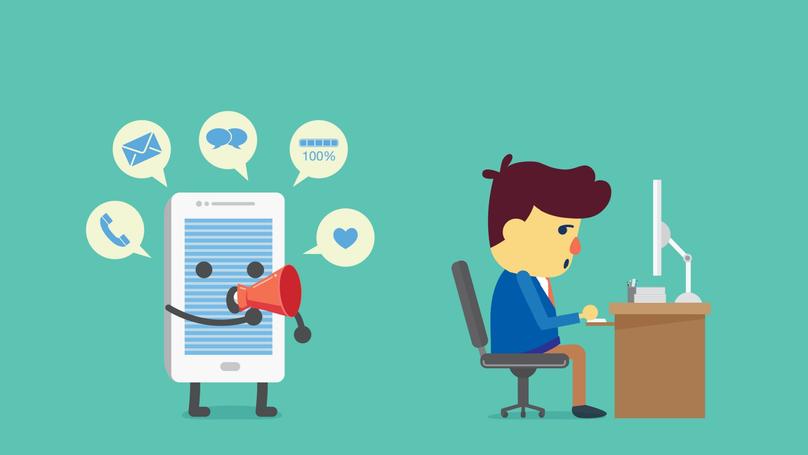Chronophages

What are chronophages?
Chronophage is derived from two Ancient Greek words: "chronos" - time and "phage" - to devour. So, in literal translation, chronophages are absorbers or eaters of time. In other words, it is everything that distracts us, steals valuable minutes and sometimes hours, interferes with our usual activities and disrupts our plans. For example, chronophages can be chatty colleagues, unexpected phone calls from our relatives or friends, traffic jams, doom-scrolling and even poor prioritization.
One can say that chronophages are all time management mistakes and planning issues, force majeure events, procrastination or, on the contrary, multitasking. At the same time, some chronophages are directly linked to human activities, such as mindless flipping through social media feeds. However, others, such as weather conditions or traffic jams, occur spontaneously and are beyond our control.
In any case, identifying and predicting our chronophages stealing our time is an effective method to increase personal efficiency in any area, such as studies, work or hobbies.
Causes of chronophages
Save for external factors, such as sudden illnesses, chronophages do not emerge by themselves. In fact, they are created by people, and there can be many reasons for this:
-
Planning errors and lack of self-discipline. If you have failed to distribute your load and set deadlines, in short, poorly arranged your affairs, you are most likely to experience an unexpected influx of tasks, missed deadlines and plans gone wrong. You won't get decent outcomes, but will just waste time. So, lack of competent time management is fertile ground for chronophages.
-
Distractions. They include everything that provokes procrastination. For example, flipping through social media feeds or doom-scrolling. Moreover, distractions can include excessive attention to details and unhealthy perfectionism, when instead of doing the work promptly you spend too much time on bringing it to perfection.
-
Personal or family problems. Our performance at work can be affected by our relationships with our loved ones, our well-being, and our mood. Moreover, fatigue, burnout, and quarrels with colleagues also distract from work. In such circumstances, it is best to take a break or postpone all the activities until next day.
-
Stress and mental peculiarities. People lose concentration and focus due to accumulated fatigue; so they can spend more time than usual on solving trivial tasks.
-
Disliked activities. Each of us has a list of tasks that we absolutely dislike. Quite logically, we keep putting them off for later and hope - deep down - that this "later" will never come. Unfortunately, this is not the case, and all our false hopes and self-suggestion about unpleasant tasks can be considered chronophages.
-
Multitasking. If you undertake an exorbitant number of tasks, sooner or later you'll miss something important because of a trivial lack of time. As a result, you'll have enough time to do many minor tasks, but they won't bring tangible results. This is the way a sense of lost time sets in.
-
Lack of a clear goal. If you don't understand why you are engaged in this or that activity, you are more than likely to achieve zero result. If you don't know what your ultimate goal is, you may overreact and waste time on useless tasks that do not bring you closer to completion.
At the same time, as mentioned above, chronophages may emerge for reasons that we can't control - queues, traffic jams, the weather, and other unexpected circumstances.
Types of chronophages

Chronophages are ubiquitous, because they are present - one way or another - in the lives of even the best-performing and practical people. There are several chronophage classifications depending on their causes and features. The most universal one is below, for example:
-
Distractions or unproductive activities - anything not useful and wasting a person's time. For example, gadget addiction and mindless surfing on the Internet are now considered the main chronophages. Other popular varieties include video games, TV shows and series.
-
Interaction with people, that is, situations where we waste time because of other people. They can be overly talkative acquaintances, as well as protracted work calls, meetings without an ultimate goal, or some not-so-competent subordinates, who we occasionally have to redo work for.
-
External circumstances - such chronophages are particularly difficult to combat because they set in regardless of our willingness. For example, a sudden illness that takes you or your child by surprise, being late for work because of the traffic jams, snowfalls, glaze ice, various other force majeure events you or your partners may suffer. After all, we can give up social media or walk away from a conversation with a chatty colleague, but we cannot influence city traffic jams.
-
Internal circumstances, that is, problems related to our mental state and health. Chronophages comprise laziness, procrastination, overwork, stress and apathy, frustration at work and loss of meaning in what you do. In order to combat such chronophages, it is essential to correctly identify one's own feelings, engage in regular self-reflection and introspection, and develop inner responsibility and discipline.
Some personal efficiency and time management experts suggest a simpler categorization of chronophages into:
1. Animate
These are too chatty and wordy neighbors, friends, and relatives - it is almost impossible to avoid talking to them. Animate chronophages also comprise cold calls, requests to participate in social surveys and communication in various messengers. It is important to realize that chronophages take up our time and carry no value. But, for example, discussion of work issues and even small talk among colleagues at a coffee break can be very useful, so it is not a good idea to completely abandon interaction with other people.
2. Inanimate
This type of chronophages includes everything not directly related to a person, but created artificially. For example, the so-distracting social media, computer games, procrastination or just laziness, as well as time spent in queues, traffic jams or waiting for an event.
There is another classification that distinguishes chronophages by the degree of their controllability. They can be:
-
Controllable, which you can predict and even make time for in your schedule. For example, mixing with friends, social networking, or taking it easy after a day's work before going about your household chores.
-
Uncontrollable, i.e., beyond our control. This could be a laptop crash, a car breakdown on the way to work, an accident or a traffic jam, your partner coming late to a meeting, and so on.
Chronophages - examples

In addition to everything already mentioned, there are also chronophages that we may not even be aware of. For example, the inability to say "no" and to refuse to do a job that is not your responsibility act as chronophages. If you do not know how to say "no", it can be a cause for a chronophage.
A hardly productive habit of taking on several tasks at a time can also become a chronophage. It has a particularly negative impact on the work if the specialist can't properly prioritize. So, the very chronophages, which affect a person, their well-being, and labor efficiency, come into play.
Excessive slowness, total perfectionism, striving for an ideal or, on the contrary, excessive haste are also vivid examples of chronophages. So is the habit of checking one's email, messengers, and social media news feeds every ten minutes.
Clutter in your personal space and on your desk may serve as a clear indicator of chronophages in your activities and daily life. Make it a habit to periodically tidy up your personal space and your desk - just set aside a certain amount of time, such as ten minutes at the end of the day. It is also a good idea to make notes and write down your daily schedule by hand.
So, you can notice chronophages in your life by simply observing yourself. Are you often late for work because of an empty conversation with a neighbor? How often do you check your social media during the workday? How many valuable hours are you willing to spend on video games, watching a TV show, or mindless mechanical activities? Analyze your behavior and answer the questions honestly. If you see that you have significantly more negative habits than productive and positive ones, it's time to combat your chronophages.
How to combat chronophages

When you become aware of chronophage causes and their various manifestations, countering them won't be a challenge. Here are the key steps:
Step 1. Identify the dominant chronophage
Simply put, you need to figure out what you are wasting the most time on. To do this, keep a special diary of your to-do's to enter everything you engage in during the week. Don't forget to record the time spent on each activity. This way you'll see which chronophages are the most frequent visitors in your life and the total time they 'eat'. For convenience, you can make a table listing the key chronophage types and your examples. It should look like this:
|
Chronophages |
Life examples |
|
Distractions |
Mobile games Social media |
|
Force majeure events |
Frequent traffic jams |
|
People |
Meaningless talks in the apartment house chat room Talkative neighbor |
|
Internal circumstances |
Dissatisfaction with work quality Lack of inspiration and motivation Fatigue and apathy |
This is a quick and easy way to identify a few major chronophages. Try to avoid them in the future. For example, if you find out that you spend the most time on messengers and scrolling through your feed, it's better to turn off all notifications and set a Do Not Disturb mode while you work. You'll be much less likely to pay attention to distractions. In addition, you can try to turn a chronophage into something useful. For example, if you constantly watch YouTube videos, explore the channels that'll help you grow professionally. That way, if you can't beat the chronophage, make the most of it.
Step 2. Engage in time management
This is a deliberate practice of conscious time management. It'll enable you to not waste a valuable resource, and always keep track of where your time is going right now. To immerse in time management, it is a good idea to start by reading on the topic, for example, Procrastination: First Aid by Tanya van Essen and Henri Schouwenburg. It focuses on the reasons for putting things off. Similarly, The Pomodoro Technique: The Life-Changing Time-Management System by Francesco Cirillo offers a more practical approach and gives precise advice - using the Pomodoro Method as an example - on how to concentrate on challenging tasks, combat procrastination, and always meet deadlines without stress and overwork.
In fact, there are many other time management methods. They offer techniques of long and short-term, almost minute-by-minute planning, various time matrices and all sorts of other principles of competent load distribution. For example, one of the most common techniques is called 90 by 30. According to it, an hour and a half, that is 90 minutes, is allocated for work followed by half an hour for leisure. The cycle takes two hours and is repeated with a certain periodicity. The 1-3-5 technique also called The Principle of Nine Tasks enjoys great demand among professionals. The approach is simple: it involves completing one large task, three medium-sized and five small ones during the day. The small ones can include, for example, light household chores, because they also need to be planned, so that they do not pile up. The main idea is that this particular number and combination of tasks will help to spend the day productively and at the same time to not run out of energy.
So, each of these techniques will help you save the most valuable resource - your time. If you properly arrange it, you'll quickly and efficiently do the accumulated tasks, start working on new ones and even allocate an hour or two for yourself. In other words, don't doubt - all of this will benefit your productivity!
Step 3. Learn to prioritize
Sometimes, when you are drowning in a sea of tasks and all sorts of commitments, you may find it very difficult to decide what to do first. That's why proper prioritization is especially important, for it allows you to identify the first-to-do tasks and put them at the top of your commitments list.
Otherwise, we'll unconsciously push difficult, but the most significant things for later, because all people tend to follow the path of least resistance. This ultimately leads to aimlessly spending and actually wasting time.
Step 4. Delegate responsibilities
Delegation is the assignment of tasks, responsibilities, or authority to another person. For example, a store owner can entrust a salesperson to order goods on their own, and parents can entrust their child to do the dishes or take out the garbage.
So, delegation allows you to assign to another person at least simple, albeit time-consuming tasks. After all, if you have too many responsibilities, you don't always have to act on them yourself, so try to assign them to someone else.
Step 5. Plan even vacations
You shouldn't neglect time management when it comes to vacations. Try to avoid burnout, procrastination, and stress. All these are vivid symptoms of overwork, which put your effectiveness at risk. So, do not forget to allocate time in your calendar to taking it easy and don't worry that you are missing something important. In this case, it's best to use The Unschedule. Authored by psychologist Neil Fiore, it is a time planning method intended to beat procrastination - one of the most common chronophages. Fiore argues that it's not work that needs to be planned, but leisure time. You should work only outside your time for yourself - self-care activities and play.
Step 6. Learn to assert personal boundaries
An equally common chronophage is the inability to say No. Learn to say No to your irresponsible subordinates and other people who delay timelines and miss deadlines, are late for meetings or suddenly disappear. Once you part with such people, you'll feel that you have a little more time.
Step 7. Always be prepared for force majeure events
We should keep in mind that external circumstances can significantly affect our lives, even if we do not wish so. However, it is a mistake to think that there is nothing we can do about it. For example, you can always have a book with you to read when you are queuing. In order to not waste time, you can also download interesting podcasts in advance and listen to them in a long traffic jam. You can even combine typical chronophages and kill two birds with one stone - waiting in a traffic jam, call a chatty relative. So, it is better to think through all kinds of developments. For example, always carry a power bank if your office occasionally suffers power outages. In other words, learn to find opportunities to not waste time, but spend it in benefit, even if it seems impossible at first glance.
Conclusion
We face dozens of various chronophages on a daily basis - from lines at gas stations to annoying coworkers. So, it is not for nothing that chronophages are called the main enemies of productivity, because the more time we spend on them, the less we have left to move towards our goals. You can use various tools to beat them - paper planners, smartphone applications, various time management techniques and methods. The main thing is to keep in mind that everything is in your hands, and you can even turn back time! You just have to want it.























